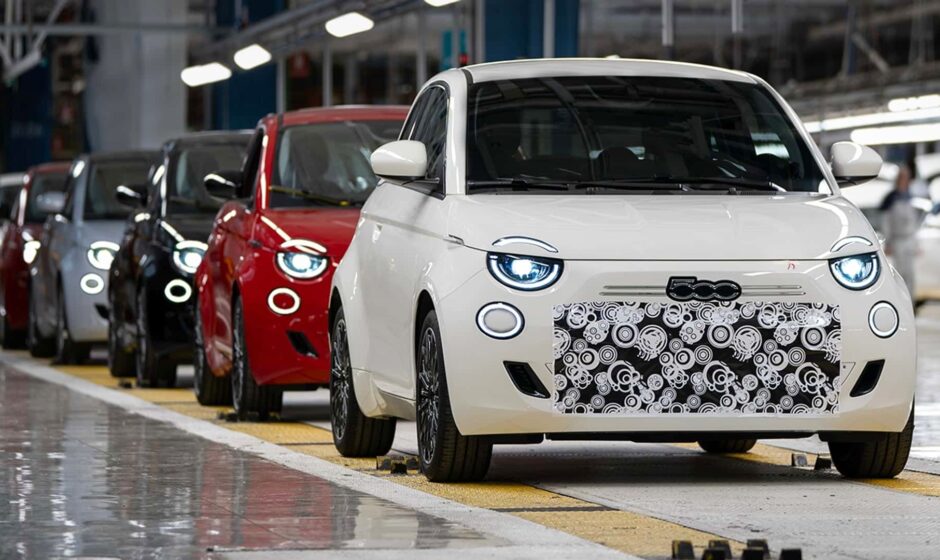Please note that we are not authorised to provide any investment advice. The content on this page is for information purposes only.
Chinese automotive giant GAC Group is intensifying its efforts to break into Europe, setting a clear target to boost its presence and sales significantly by 2027. The company is leveraging its strength in new energy vehicles (NEVs), with a comprehensive strategy focused on product launches, a robust service network, and a commitment to adapting to European consumer preferences.
GAC Targets Massive Increase in European Sales
GAC plans to sell around 3,000 vehicles in Europe this year and has set an ambitious target of increasing sales to 15,000 next year and at least 50,000 in 2027.
“Europe is one of our five major markets. It is a strategic market. We hope Europe will account for a major portion of our overseas market in the future,” said Wei Haigang, president of GAC International, in an interview with CNBC at the IAA Mobility auto show in Munich.
At the heart of GAC’s European offensive is its electric vehicle (EV) brand, Aion. The company’s recent showcases at major European auto shows, including the IAA Mobility in Munich, have served as a platform to announce its “European Market Plan.” This initiative, first unveiled at the 2024 Paris Motor Show, is a multi-pronged approach to establishing GAC as a credible and sustainable player in the region.
The flagship model leading the charge is the second-generation Aion V, a family-friendly electric SUV designed to meet European safety standards and consumer needs. With a starting price point that aims to be competitive with European rivals, the Aion V is positioned to attract environmentally conscious and budget-minded buyers.
GAC To Build a Localized Ecosystem in Europe
GAC’s expansion is not merely about shipping cars from China. The company is actively building a localized ecosystem. It has established a European headquarters in the Netherlands and a design studio in Italy to ensure its vehicles and brand identity resonate with European tastes. GAC is also building a comprehensive service network, including a spare parts distribution center in the Netherlands and partnerships with European roadside assistance providers like Allianz Partners. This “In Europe, for Europe” philosophy aims to build trust and provide a seamless ownership experience, addressing a key concern for consumers considering a new, foreign brand.
Chinese EV Companies Are Expanding in Europe
The push by Chinese automakers into Europe has been a well-calculated move. Facing intense price wars and slowing sales in their home market, they have looked abroad for growth. Europe, with its ambitious decarbonization goals and strong EV incentives, presents an ideal target.
While the European Union’s imposition of tariffs on Chinese-made EVs has created a new challenge, brands like BYD, Nio, and Xpeng Motors have shown remarkable resilience and adaptability. Their strategy is a multi-pronged assault on the status quo, and recent sales trends reflect its effectiveness.
Chinese EV brands, including those with Chinese ownership like MG and Polestar, have seen their market share in Europe’s EV sector climb steadily. In June 2025, they had captured a significant 10% share of the European EV market, matching their pre-tariff levels and showcasing their ability to navigate trade barriers.
GAC Is Hopeful of EU Tariff Relief
GAC, meanwhile, is hopeful of some relief on the tariffs that Chinese EVs face in Europe. “We are hoping the Chinese government and the European Union can negotiate further to bring the tariffs down,” said Wei.
He added, “In the future, we hope to accelerate the manufacturing localization. So that, in the future, we [can] build up manufacturing capability in Europe for Europe, to better serve the European markets.”
The EU Has Imposed Tariffs on Chinese EVs
A key strategic pivot for Chinese automakers has been the aggressive marketing of plug-in hybrid vehicles (PHEVs). While the EU’s tariffs are primarily on battery electric vehicles (BEVs), Chinese companies have capitalized on a growing consumer preference for PHEVs, which offer the flexibility of both electric and gasoline power.
To circumvent tariffs and build a more enduring presence, Chinese companies are making significant investments in European manufacturing. BYD, a leader in this charge, is building a factory in Hungary and another in Turkey with the goal of producing all its European-market EVs locally within the next few years. This strategic shift is a direct response to trade tensions and a long-term commitment to the European market.
Why have Chinese EV Companies Been So successful in Europe
The success of Chinese EV companies in Europe is not accidental. It’s a result of several key advantages that allow them to compete head-to-head with established players.
Cost-Effectiveness: Chinese manufacturers benefit from a highly integrated domestic supply chain and economies of scale, allowing them to produce well-equipped cars at prices that European brands often cannot match, even with the added cost of tariffs.
Technological Innovation: Companies like BYD are at the forefront of battery technology and smart features. They are rapidly refreshing models—every 1.3 years on average, compared to 4.2 years for European rivals—which keeps their offerings fresh and appealing to tech-savvy consumers.
Variety of Models: Chinese automakers are bringing a broad range of models to Europe, from small city cars to large SUVs, providing consumers with more choice and catering to different budgets and needs.
Government Support: Extensive financial backing from the Chinese government has allowed these companies to invest heavily in research and development and build a robust value chain, from raw materials to final assembly.
Musk Has Been All Praise for Chinese EV Companies
Notably, Chinese EV companies are expanding in Europe at the expense of German auto giants, as well as Tesla, whose market share in the region has declined gradually this year, in part due to CEO Elon Musk’s divisive political stance.
Musk has meanwhile been all praise for Chinese EV companies and, during Tesla’s Q4 2023 earnings call, said, “Frankly, I think, if there are not trade barriers established, they will pretty much demolish most other companies in the world.”
The billionaire added, “The Chinese car companies are the most competitive car companies in the world. So, I think they will have significant success outside of China depending on what kind of tariffs or trade barriers are established.”
#Chinas #GAC #Targets #Major #Expansion #Europe


